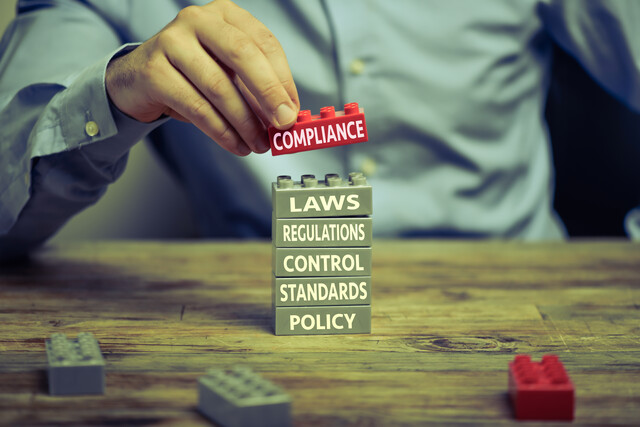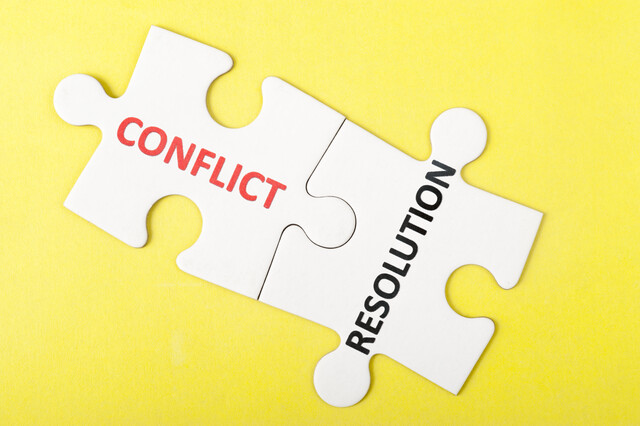Online Class: Anger Management Techniques

no certificate
with CEU Certificate*
-
10Lessons
-
26Exams &
Assignments -
9,126Students
have taken this course -
5Hours
average time -
0.5CEUs
Course Description
Manage Your Anger: A Comprehensive Online Course
Do the aftereffects of unrestrained anger leave you grappling with regret or damaged relationships? If so, our meticulously designed online anger management course might be your pathway to finding equilibrium. This course is more than just theoretical knowledge; it provides actionable techniques and holistic understanding, acting as a guide to reclaim control over one's reactions.
Understanding Anger
At its core, anger is an emotional response to external or internal events. It can manifest as a mild irritation or escalate to intense fury. It's essential to remember that anger, in itself, is a natural and sometimes necessary emotion. However, the real concern arises when this emotion results in aggressive, violent, or disruptive behaviors.
Anger often stems from unmet expectations, whether they're related to other people's actions, situational outcomes, or even our performance. For instance, consider a scenario where you expect a peaceful drive to work, but instead, you're stuck in a bumper-to-bumper traffic jam. The disparity between expectation and reality can ignite feelings of frustration.
However, it's the outward expression of this anger that can lead to conflicts. Lashing out at a loved one in a heated moment, or engaging in destructive behaviors like property damage, can have long-term consequences on relationships, professional life, and mental well-being.
Delving Deeper: The Many Facets of Anger
-
Types of Anger: There are distinct forms of anger. Some might stem from feeling threatened, while others arise from perceived injustices or are more personality-driven than situational.
-
Responses to Anger: Recognizing how one responds to anger is crucial. For some, it's a verbal outburst, while others might resort to physical actions.
-
Anger in Relationships: Uncontrolled anger can strain relationships. By understanding its origins and manifestations, one can mitigate its impact.
-
Stress and Anger: Stress can exacerbate anger. Identifying stressors and managing them can significantly reduce unwarranted anger episodes.
-
Passive Aggressive Behaviors: This is a covert way of expressing anger. Recognizing and addressing such behaviors can improve interpersonal dynamics.
-
Empathy: Cultivating empathy can be a buffer against unwarranted anger. Understanding others' perspectives can reduce misunderstandings and conflicts.
Tools & Techniques
-
Control Mechanisms: Learn proven strategies to regulate anger episodes and prevent them from escalating.
-
Relaxation Techniques: Incorporate breathing and relaxation exercises to reduce the intensity of anger.
-
Seeking Professional Help: Recognize when it's time to seek expert intervention and the available resources.
Why Take This Course?
If anger is the default response to trivial irritants or is affecting your personal and professional life adversely, it's a sign that intervention is needed. The repercussions of unchecked anger extend beyond the individual. It affects families, friendships, workplaces, and communities.
Our course equips you with knowledge, resources, and techniques to break the cycle of reactive anger. By fostering self-awareness and teaching control methods, we aim to help participants lead a balanced, fulfilling life.
In Conclusion
Anger, when understood and managed, can be transformed from a disruptive force to a constructive one. Our course aims to be that transformative tool, guiding you towards understanding, acceptance, and effective management of this potent emotion. Join us, and take the first step towards a harmonious, balanced life.
- Completely Online
- Self-Paced
- Printable Lessons
- Full HD Video

- 6 Months to Complete
- 24/7 Availability
- Start Anytime
- PC & Mac Compatible
- Android & iOS Friendly
- Accredited CEUs

Course Lessons
Lesson 1. Anger: A Double-Edged Sword
Rooted in both internal and external triggers, anger is a defense mechanism that is crucial for survival but can become problematic when not managed. Recognizing personal anger triggers and learning to control reactions can prevent disruptive consequences in life.Lesson 2. Managing Anger Through Historical Insights and Modern Psychology
Historically, anger has been analyzed by philosophers and psychologists, seeking to understand its influence on human behavior. Physiologically, anger readies the body for confrontation, showcasing primal instincts through observable changes in posture and facial expressions.Lesson 3. Recognizing and Managing Anger: A Comprehensive Guide
To control anger, it's crucial to first recognize the physical and emotional signs of it. Understanding and addressing personal triggers can help in developing healthier responses.Lesson 4. Understanding and Expressing Anger Effectively
Anger is a natural emotion, but expressing it constructively is crucial for personal well-being. The lesson offers strategies to identify anger triggers and explore forgiveness as vital tools for managing angry feelings.Lesson 5. Empathy: A Powerful Tool for Understanding and Connection
Empathy is a learned ability to understand others' emotions, helping to manage personal anger by fostering connection. By practicing empathy, you can better navigate conflicts, transforming anger into understanding and improved relationships.Lesson 6. The Subtle Sabotage of Passive-Aggressive Actions
Passive-aggressive behavior is a masked form of expressing dissatisfaction, leading to miscommunication and unresolved issues. Awareness and open dialogue are essential steps toward healthier emotional management.Lesson 7. Understanding the Link Between Stress and Anger
Stress can amplify anger and provoke intense reactions to trivial matters by altering mental and physical states, increasing the challenges of anger management. Understanding stress and employing strategies like exercise, meditation, and counseling can help mitigate its negative impacts and improve overall well-being.Lesson 8. Dealing with Anger: Effective Strategies for Families
A family environment rich in open communication diminishes the risk of damaging anger and fosters mutual understanding. Parents should guide by example, illustrating how to manage anger constructively and resolve conflicts amicably.Lesson 9. Professional Guidance for Managing Anger
Unchecked anger can lead to destructive behaviors and strained relationships, making professional intervention crucial. By utilizing anger management techniques, individuals can learn to handle their emotions positively and constructively.Lesson 10. Mastering Calm: Essential Breathing Exercises
Focusing on full-body relaxation and diverse breathing techniques like short breaths, puffing, and waking breath, this lesson highlights mindfulness and careful practice for optimal results. The exercises aim to enhance lung capacity and promote tranquility, requiring a serene environment and slow, measured inhalations and exhalations.
Learning Outcomes
- Define the types of anger and describe how they manifest in different situations.
- Identify internal and external triggers of anger and demonstrate techniques for managing emotional responses effectively.
- Demonstrate the ability to recognize signs of anger and apply appropriate strategies to manage and express it in a healthy manner.
- Identify and describe the psychological, physiological, and cognitive responses to anger and how they impact behavior.
- Identify two personal triggers that consistently lead to feelings of anger and formulate a strategy for responding constructively.
- Recognize and describe at least three physiological signs of anger demonstrated by their body during a typical anger-provoking event.
- Demonstrate methods for expressing anger constructively through effective communication and stress-reduction techniques.
- Recognize and describe the physical and mental cues that indicate the onset of anger.
- Apply mental exercises to recognize and reduce assumptions or stereotypes, enhancing empathetic responses to diverse individuals.
- Demonstrate the ability to identify and articulate another person's perspective in emotionally charged situations to diffuse personal anger.
- Demonstrate the ability to identify passive-aggressive behaviors in everyday situations by listing at least three common traits or actions associated with this behavior.
- Recognize and articulate personal experiences of anger leading to passive-aggressive actions, showing improved self-awareness by describing how they manage them differently now.
- Identify and describe the physiological and emotional symptoms of stress to understand its impact on health and anger management.
- Demonstrate mastery of lesson content at levels of 70% or higher.
Additional Course Information

- Document Your Lifelong Learning Achievements
- Earn an Official Certificate Documenting Course Hours and CEUs
- Verify Your Certificate with a Unique Serial Number Online
- View and Share Your Certificate Online or Download/Print as PDF
- Display Your Certificate on Your Resume and Promote Your Achievements Using Social Media

Choose Your Subscription Plan
No Certificate / No CEUs
This course only
| Includes certificate | X |
| Includes CEUs | X |
| Self-paced |

|
| Instructor support |

|
| Time to complete | 6 months |
| No. of courses | 1 course |
Certificate & CEUs
This course only
| Includes certificate |

|
| Includes CEUs |

|
| Self-paced |

|
| Instructor support |

|
| Time to complete | 6 months |
| No. of courses | 1 course |
Certificates & CEUs
Includes all 600+ courses
| Includes certificate |

|
| Includes CEUs |

|
| Self-paced |

|
| Instructor support |

|
| Time to complete | 12 Months |
| No. of courses | 600+ |
Certificates & CEUs
Includes all 600+ courses
| Includes certificate |

|
| Includes CEUs |

|
| Self-paced |

|
| Instructor support |

|
| Time to complete | 24 Months |
| No. of courses | 600+ |
Student Testimonials
- "I really enjoyed this course. I thought it was very informative about what anger management is and how to reduce your anger and stress. It helped me become more self-aware of my expectations and the journal exercises were further helpful to be able to communicate some of my issues." -- Erin J.
- "I am very thankful for the opportunity to take this course and feel that it was very helpful in teaching ways to recognize and deal with my anger in the future." -- Tony M.
- "I think this course is great. Every lesson is laid out in a way that is easy to navigate. Very informative." -- Erin G.
- "I think this course was amazing and I think the breathing steps and how to take care of stress was very helpful." -- Kiara W.
- "This course was very helpful. I now have the tools I need to address my anger in a healthier way. Complete eye opener! Thank you!" -- Tracy H.
- "I enjoyed the course very much , I did find it challenging at times, as it's the very first self help course that I've ever done...I'm very happy with the outcome and how I feel. I believe the course has helped and improved my anger issues and state of mind. Thank you." -- John L.
- "The course was great I learned so many things that I did not knew before and I also learned about myself, what caused me to be angry and what steps should I take to control it. I think I am more equipped with the tools I needed to control and handle my anger through this course,tkank you." -- Harsimran P.
- "The course, for me, was reflective, offering new insights to control of anger issues. I thought, overall, the course met its desired outcomes." -- George P.
- "Yes this is a very well explained course and every thing is explained in good detail and easy to understand with good examples. It was really very helpful in giving me a insight about my own anger and helped to understand myself better I can definitely enjoy the benefits of this course. Thank you very much." -- Steven P.
- "Very good as it allows me to understand about passive-aggressive behavior which relates to what happen in my life and how I've responded in fits of anger. Thank you with appreciation." -- Cindy juliana R.
Related Courses
-
 25 hours
2.5 CEUs
Human Resources Productivity Course Bundle
+ More Info
25 hours
2.5 CEUs
Human Resources Productivity Course Bundle
+ More Info
-
 54 hours
5.4 CEUs
Become a Life Coach - Course Bundle
+ More Info
54 hours
5.4 CEUs
Become a Life Coach - Course Bundle
+ More Info
-
 3 hours
0.3 CEUs
Problem Solving Strategies
+ More Info
3 hours
0.3 CEUs
Problem Solving Strategies
+ More Info
-
 5 hours
0.5 CEUs
Lawful Employee Termination
+ More Info
5 hours
0.5 CEUs
Lawful Employee Termination
+ More Info
-
 5 hours
0.5 CEUs
Workplace Safety
+ More Info
5 hours
0.5 CEUs
Workplace Safety
+ More Info
-
 9 hours
0.9 CEUs
Relaxation 101
+ More Info
9 hours
0.9 CEUs
Relaxation 101
+ More Info
-
 5 hours
0.5 CEUs
Building Self-Esteem in Children
+ More Info
5 hours
0.5 CEUs
Building Self-Esteem in Children
+ More Info
-
 8 hours
0.8 CEUs
Meditation Mastery: Learn How to Meditate
+ More Info
8 hours
0.8 CEUs
Meditation Mastery: Learn How to Meditate
+ More Info
-
 5 hours
0.5 CEUs
The Art of Setting Goals
+ More Info
5 hours
0.5 CEUs
The Art of Setting Goals
+ More Info
-
 5 hours
0.5 CEUs
Child Safety for Parents
+ More Info
5 hours
0.5 CEUs
Child Safety for Parents
+ More Info
-
 8 hours
0.8 CEUs
Strategic Planning
+ More Info
8 hours
0.8 CEUs
Strategic Planning
+ More Info
-
 3 hours
0.3 CEUs
The Art of Breathing
+ More Info
3 hours
0.3 CEUs
The Art of Breathing
+ More Info
-
 5 hours
0.5 CEUs
Depression Management
+ More Info
5 hours
0.5 CEUs
Depression Management
+ More Info
-
 3 hours
0.3 CEUs
Criminology: The Anatomy of American Justice
+ More Info
3 hours
0.3 CEUs
Criminology: The Anatomy of American Justice
+ More Info
-
 6 hours
0.6 CEUs
Generational Diversity in the Workplace
+ More Info
6 hours
0.6 CEUs
Generational Diversity in the Workplace
+ More Info
-
 6 hours
0.6 CEUs
Workplace Violence: A Guide to Responding and Preventing
+ More Info
6 hours
0.6 CEUs
Workplace Violence: A Guide to Responding and Preventing
+ More Info
-
 7 hours
0.7 CEUs
Respectful International Workplace
+ More Info
7 hours
0.7 CEUs
Respectful International Workplace
+ More Info
-
 9 hours
0.9 CEUs
Emotional and Behavioral Disorders
+ More Info
9 hours
0.9 CEUs
Emotional and Behavioral Disorders
+ More Info
-
 5 hours
0.5 CEUs
Creative Thinking Skills
+ More Info
5 hours
0.5 CEUs
Creative Thinking Skills
+ More Info
-
 7 hours
0.7 CEUs
Understanding Drug and Alcohol Abuse
+ More Info
7 hours
0.7 CEUs
Understanding Drug and Alcohol Abuse
+ More Info
-
 8 hours
0.8 CEUs
Decision Making Skills
+ More Info
8 hours
0.8 CEUs
Decision Making Skills
+ More Info
-
 3 hours
0.3 CEUs
Building Self Esteem
+ More Info
3 hours
0.3 CEUs
Building Self Esteem
+ More Info
-
 4 hours
0.4 CEUs
Stress Management
+ More Info
4 hours
0.4 CEUs
Stress Management
+ More Info
-
 7 hours
0.7 CEUs
Employment Law Fundamentals
+ More Info
7 hours
0.7 CEUs
Employment Law Fundamentals
+ More Info
-
 7 hours
0.7 CEUs
Collaboration Skills
+ More Info
7 hours
0.7 CEUs
Collaboration Skills
+ More Info
-
 7 hours
0.7 CEUs
Innovative Thinking Skills
+ More Info
7 hours
0.7 CEUs
Innovative Thinking Skills
+ More Info
-
 7 hours
0.7 CEUs
Lifetime Wellness 101
+ More Info
7 hours
0.7 CEUs
Lifetime Wellness 101
+ More Info
-
 9 hours
0.9 CEUs
Autism Spectrum Disorders for Teachers
+ More Info
9 hours
0.9 CEUs
Autism Spectrum Disorders for Teachers
+ More Info
-
 5 hours
0.5 CEUs
Developing Great Social Skills
+ More Info
5 hours
0.5 CEUs
Developing Great Social Skills
+ More Info
-
 3 hours
0.3 CEUs
Workplace Drug Use - An HR Guide
+ More Info
3 hours
0.3 CEUs
Workplace Drug Use - An HR Guide
+ More Info
-
 8 hours
0.8 CEUs
Assertiveness Training
+ More Info
8 hours
0.8 CEUs
Assertiveness Training
+ More Info
-
 4 hours
0.4 CEUs
Understanding Workers' Compensation
+ More Info
4 hours
0.4 CEUs
Understanding Workers' Compensation
+ More Info
-
 8 hours
0.8 CEUs
Behavior Management 101
+ More Info
8 hours
0.8 CEUs
Behavior Management 101
+ More Info
-
 6 hours
0.6 CEUs
Introduction to Abnormal Psychology
+ More Info
6 hours
0.6 CEUs
Introduction to Abnormal Psychology
+ More Info
-
 16 hours
1.6 CEUs
Psychology 101
+ More Info
16 hours
1.6 CEUs
Psychology 101
+ More Info






